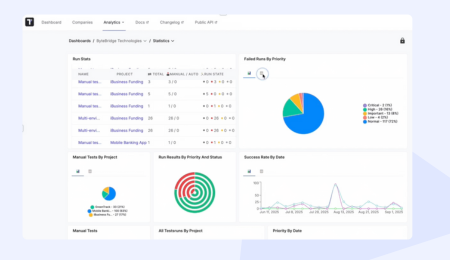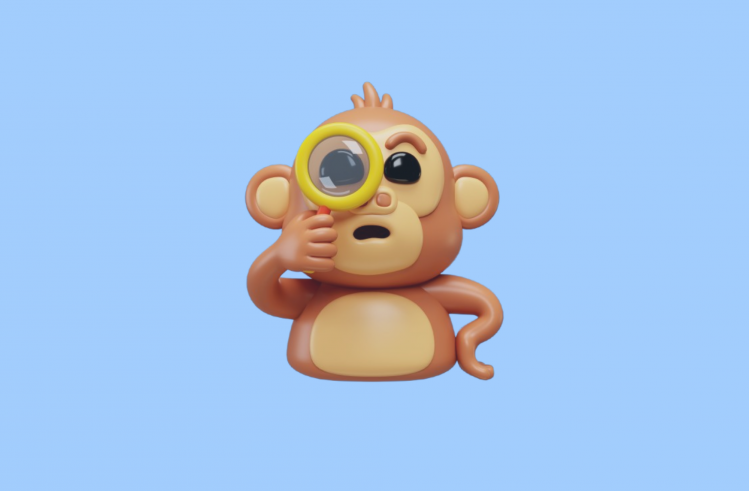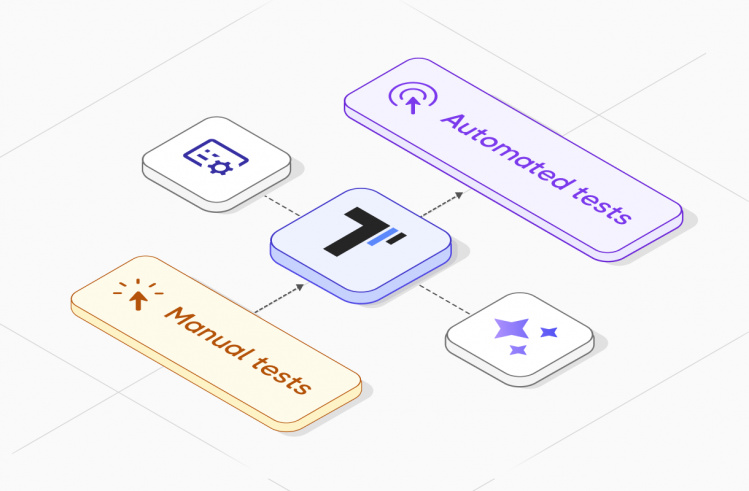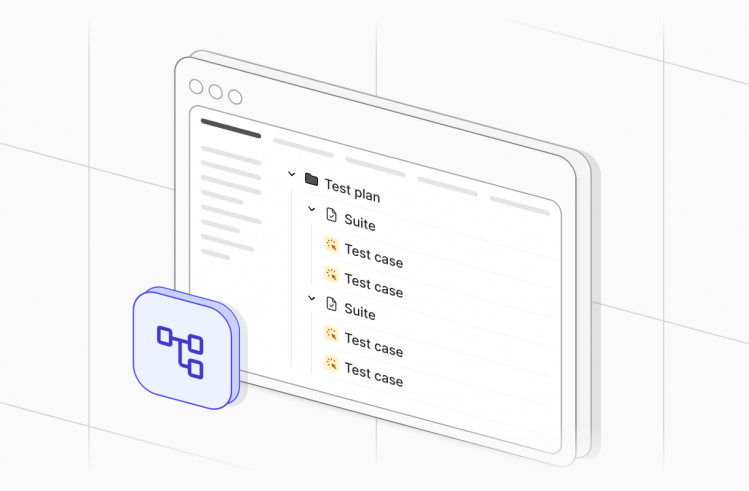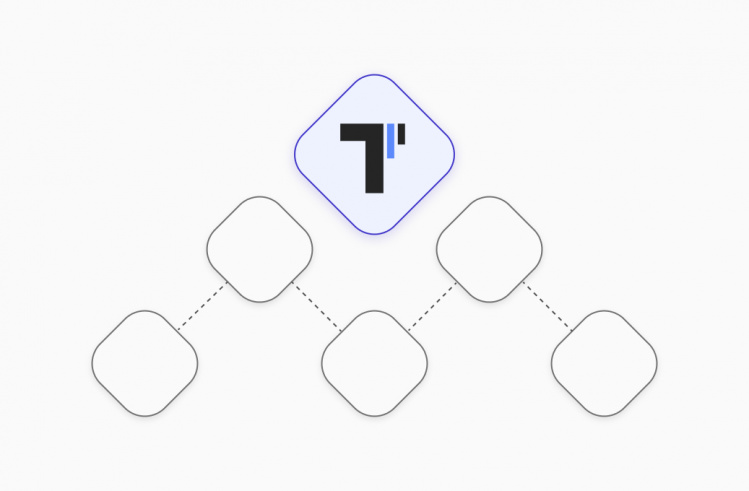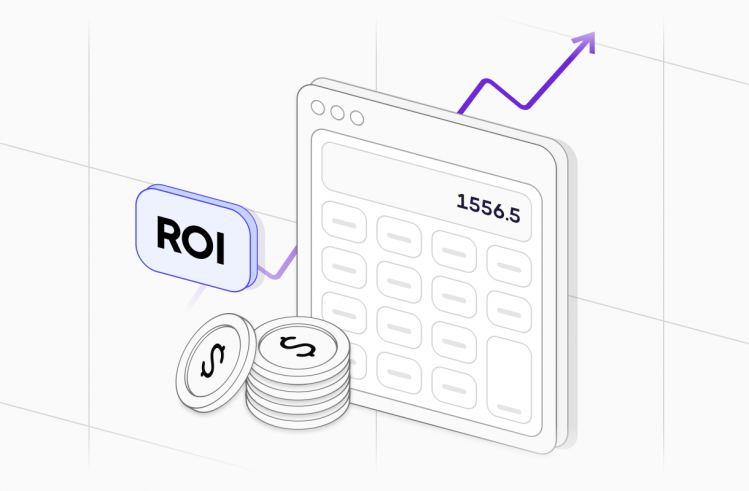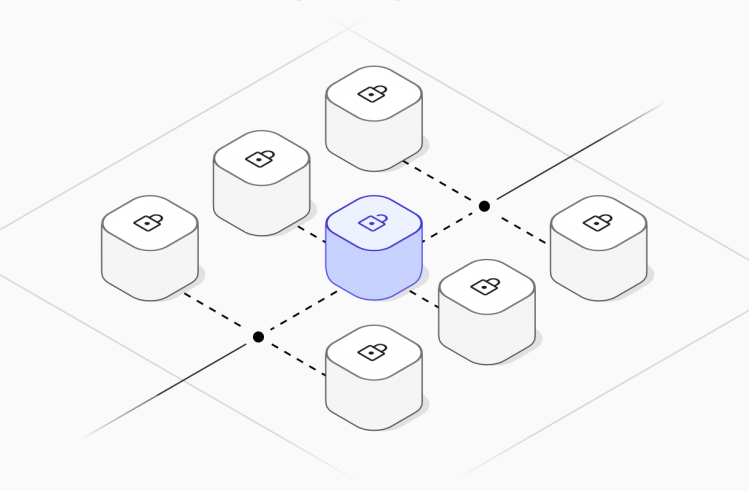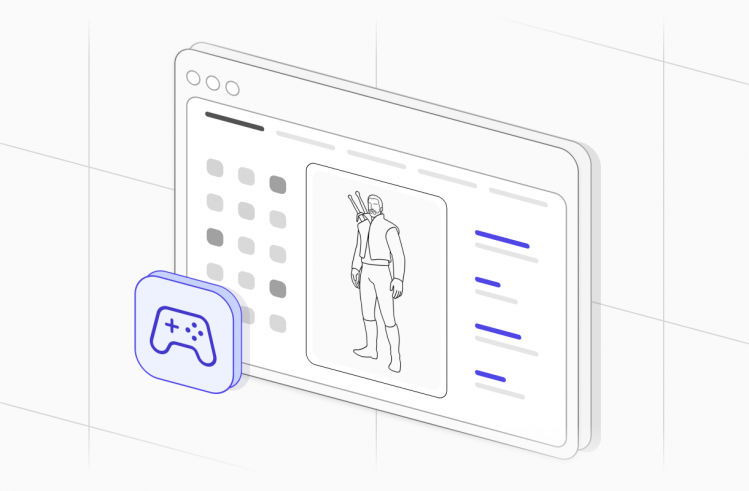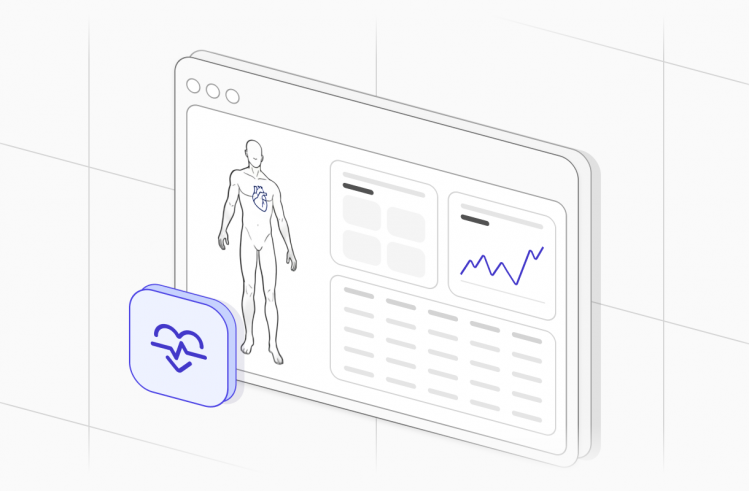We see the software development process evolving and moving from classic waterfall methodologies to agile and DevOps-based approaches. Knowing that, software QA teams should respond to quicker release cycles and growing complexity.
With continuous testing, they can make the software testing process automatic and get it done quickly within the DevOps process.
However, they face difficulties when dealing with complicated CI\CD pipelines, strict security requirements, and dynamic cloud infrastructure. Thanks to artificial intelligence, that process is getting less labor-intensive and time-consuming. AI helps create systems that detect problems and heal themselves while optimizing performance and delivering software products which remain reliable, functional, and secure throughout their software development lifecycle.
What is Continuous Testing with AI?
Continuous testing is the practice of testing software continuously throughout the development cycle, typically as part of a continuous integration (CI) or continuous delivery and continuous deployment (CD) pipeline. By integrating testing into every phase of development, teams can catch defects early, improve product quality, and speed up delivery cycles.
When talking about Artificial Intelligence in the context of Continuous Testing, we mean embedding intelligent algorithms which can learn, adapt, and optimize the test cycles. By integrating AI algorithms in continuous testing, artificial intelligence technology helps minimize human involvement in executing tests, improve accuracy, optimize QA activities, and even start a self-healing process.
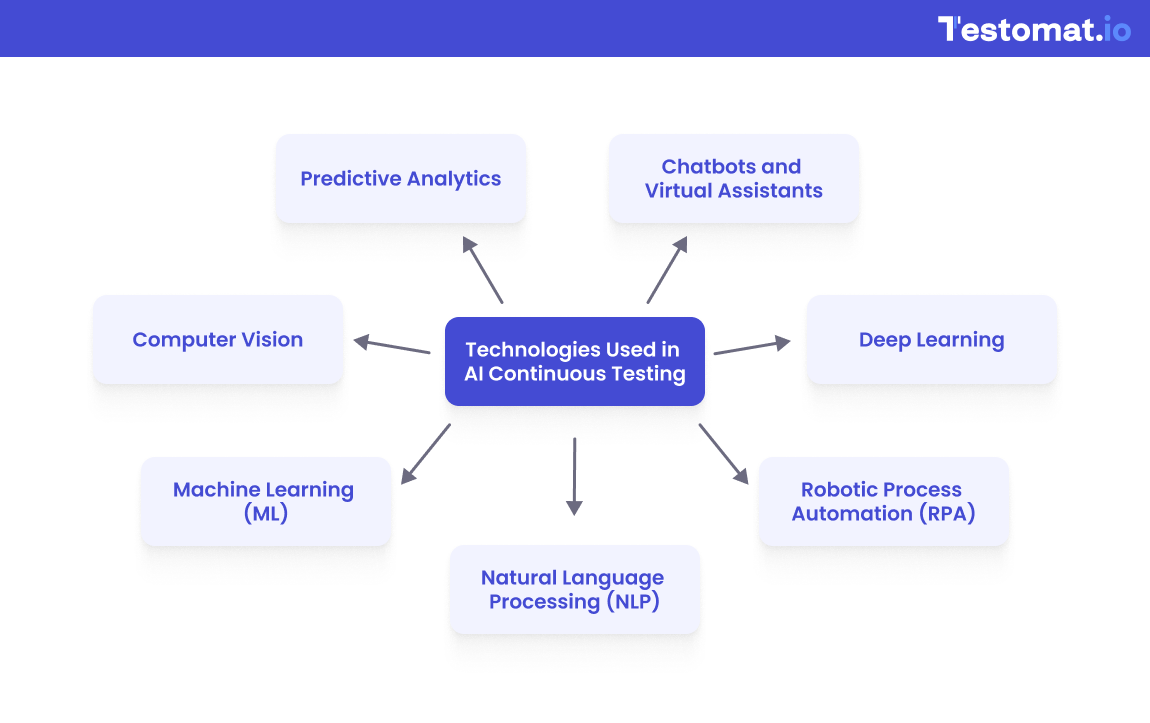
Generally, ML, NLP, robotics, computer vision, and other technologies come under the umbrella of AI in DevOps. Let’s reveal how they can power the continuous testing process:
- Machine Learning (ML). ML-based algorithms are useful in analyzing historical test data. They applied to identify patterns, make test case selection more effective, predict software defects, and learn from past processes of the test executions.
- Natural Language Processing (NLP). NLP can be used to turn test cases, which have been written in everyday language, into executable scripts and to avoid the need for complex scripting.
- Robotic Process Automation (RPA). With RPA, you can model human actions across various systems and environments to confirm that all the pieces of the app work together correctly.
- Computer Vision. Thanks to AI computer vision, UI elements can be recognized based on their visual characteristics rather than fixed positions, making tests more robust against layout changes and increasing the correctness of UI checks.
- Deep Learning. With deep learning, you can tackle highly specific challenges – identifying sophisticated vulnerabilities in your code repositories, scaling real-time anomaly detection in dynamic systems, and using automated root cause analysis to pinpoint the root cause of complex incidents.
- Predictive Analytics. Thanks to predictive analytics, you can learn information about future events and minimize risks in terms of selecting optimal deployment windows, adjusting resources when scaling.
- Chatbots and Virtual Assistants. These AI-based tools are useful when there is a need to automate interactions with the development team and provide real-time assistance during the development cycle.
We would like to mention that all these types of artificial intelligence require you to learn how to use them for your team’s needs. It’s worth remembering that they are just tools, which will only work if handled the right way in continuous integration automated testing.
Ways To Use AI For Effective Continuous Testing in DevOps
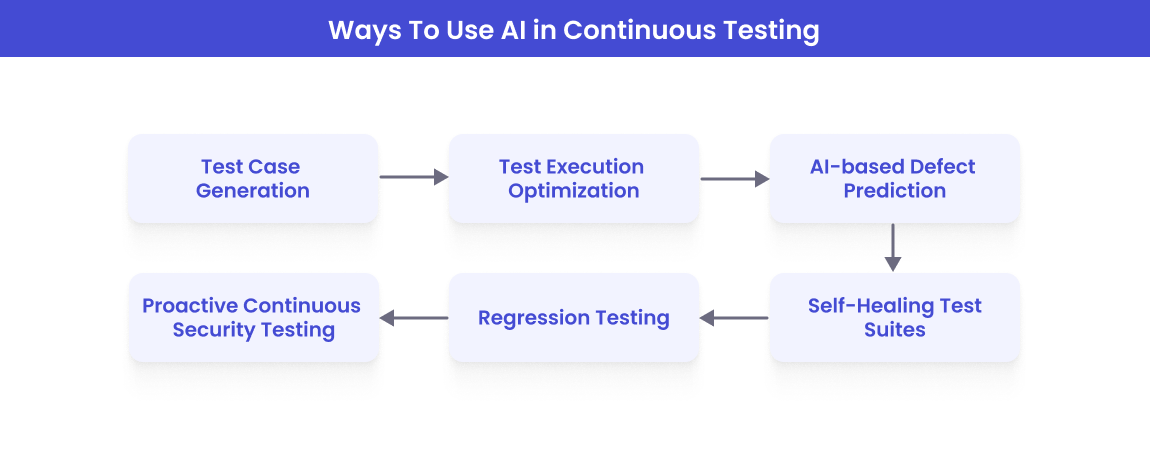
Here are some key ways artificial intelligence is changing continuous testing in DevOps:
✅ Test Case Generation
Teams can apply AI-based algorithms when they need to save time and minimize their effort in creating and maintaining test cases. In this case, artificial intelligence is used to automatically generate test cases in accordance with requirements, user stories, past defect patterns, and code analysis.
✅ Test Execution Optimization
When teams need to optimize the execution flow of tests based on real-time data and new changes in the software application, they can use AI algorithms. They are effective at assessing new code modifications and previous test outcomes to guarantee that the most critical tests are executed first. In addition to that, artificial intelligence can be used to provide parallel execution of tests across multiple environments. In the long run, it enhances test coverage and reduces execution time with faster feedback cycles.
✅ AI-based Defect Prediction
When teams need to predict potential defects and resolve them before they escalate, artificial intelligence algorithms help them do it by analyzing test results and historical data, and identifying correlations between code changes and failures. In addition to that, AI can be applied to monitor application behavior and identify anomalies or unusual patterns in test executions. It can even detect slight visual changes in the user interface that might negatively impact user experience.
✅ Self-Healing Test Suites
Teams have been forced to deal with broken test cases in terms of changes in UI elements, APIs, or system behaviors. Thanks to AI, the process of adapting to changes in the application under test is being done automatically while providing continuous and stable test execution in DevOps environments.
✅ Regression Testing
With AI, the process of identifying and managing relevant regression tests, following unit tests, based on changes and risk assessments, which have been given to each selection, is highly effective and guarantees more comprehensive regression testing. In addition to that, artificial intelligence also investigates areas that need more test cycles, which makes sure they are managed and handled in the right way.
✅ Proactive Continuous Security Testing
Artificial intelligence usage in DevOps can be applied as proactive security measures in order to identify security vulnerabilities through code modifications and code dependencies analysis. It detects security risks and discovers abnormal API call patterns in microservices, which allows teams to move security testing into the initial stages of development and minimize production threats. Also, artificial intelligence helps get real-time visibility and keep an organization’s digital presence under control through continuous attack surface testing.
Why Teams Need AI for Continuous Testing?
Now let’s talk about the main reasons your teams need an AI solution to streamline the testing process.
- Teams can optimize test execution and deal with the highest-priority areas first to prevent things that could really go wrong.
- Teams can win from AI’s capability to predict potential problems, even unusual situations that human quality assurance (QA) might miss.
- With AI, there is no need for the teams to perform time-consuming testing tasks, such as regression testing, exploratory testing, integration testing, performance testing, UI validation, and data entry.
- Based on deep artificial intelligence analysis, teams are in the know the original reasons for bugs, which means they need less time spent debugging and fixing.
- Thanks to artificial intelligence in test data management, teams can deal with faster data provisioning, automated generation, retrieval, and preparation of diverse types of tests instead of doing it manually.
- With artificial intelligence usage, teams can simulate complex and multi-stage attack scenarios and react by integrating continuous penetration testing directly into the CI\CD pipeline.
Key Benefits of AI in CI\CD
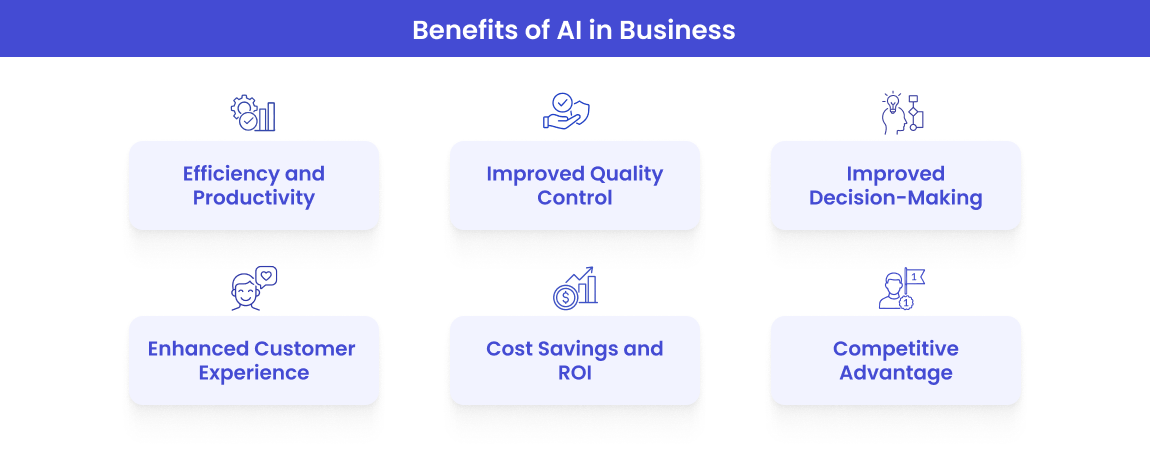
These were times when teams handled a lot of tasks manually. With modern technology, however, you can successfully use AI in CI\CD and reap the benefits:
- Pipeline Optimization. With AI, you can understand historical data of test executions and performance patterns. Knowing this information, artificial intelligence can change pipeline settings automatically, which helps find problems and anomalies, suggest fixes, and change resource usage in a jiffy. In the long run, it will lead to quicker build times and more stable deployments.
- Better Monitoring Capabilities. When using AI tools for CI/CD optimization, you can get real-time information about the QA process, alerts, logs, and error detection. Thanks to the ability to consider past logs and errors, artificial intelligence can quickly find the cause of pipeline issues and respond without manual work.
- Efficient resource usage. When applying AI, there is no need to plan resources manually. It automatically scales resources up or down based on what is required.
- Automated Tasks and Improved Security. When it comes to regular pipeline tasks like building, validation, and deploying code, artificial intelligence can automate them and reduce manual testing effort. In addition to that, there is an option of blocking or flagging risky code before it goes into the production environment.
- Code Quality Checks. AI-powered solutions for CI/CD look at code for bugs, style problems, and performance issues. It gives quick feedback to developers, helping them fix mistakes early and keeping the code clean and effective. If there are any issues, they are listed in the logs for manual review.
Challenges in Implementing AI in DevOps Testing
While we can see more benefits of artificial intelligence in DevOps testing, there are also challenges to its adoption. These include:
- You should take into account data quality and its availability. In order to work well, AI requires large volumes of high-quality data, which helps eliminate inaccurate predictions and inefficient QA processes. Furthermore, artificial intelligence should be continuously trained and fine-tuned to improve its accuracy, which requires expertise and resources.
- You may face integration complexity when trying to incorporate AI continuous testing tools with existing DevOps processes. To do this, you need access to quality data from various sources. However, data can be scattered across different departments or systems, making access and integration cumbersome.
- Many existing CI\CD pipelines and test frameworks lack built-in capabilities of artificial intelligence and necessitate additional setup.
- When you decide to integrate AI, you need to remember that it requires investment in infrastructure and whole team training. With increasing AI complexity, you need more computational power to run it.
Best Practices for Implementing Continuous Testing
Before implementing AI in continuous testing, you need to plan strategically and utilize the right continuous testing tools in DevOps. Here are some best practices for artificial intelligence in continuous testing:
- You need to remember that it is not effective to use AI to fix everything and everyone’s issues. It would be a good idea to define a specific testing challenge, which AI can solve. For example, improving test coverage in complex areas or identifying flaky tests.
- To work correctly, AI relies on data. You need to make sure the data is clean and representative to avoid unfair or discriminatory test results. Also, you should choose AI tools and techniques that align with your specific needs and infrastructure.
- You need to decide what you aim to achieve with AI and start doing it step-by-step. You can try the pilot projects without implementing a radical change, and apply AI where it can provide the most immediate value and help you attain established business goals.
- You should combine AI with existing QA methods. There is no need to replace human testers and traditional automation. The task is to automate time-consuming and repetitive tasks which require analyzing large datasets.
- You need to educate your team about how to use AI tools. Also, it is important to maintain documentation where all the information about the AI implementation process, training data, and integration processes is stored.
- You need to train AI models with fresh data to adapt them to your needs when scaling.
Meet more:
Let’s sum up 😀
Is Your Infrastructure Ready For AI DevOps Continuous Testing Services?
AI continuous testing is becoming a crucial part of modern CI/CD workflows. When you use AI for continuous integration and testing, this integration promises automation and intelligent decision-making, improves software quality and reliability.
If utilized correctly, AI CI\CD workflow will lead to more efficient, accurate, and reliable software lifecycles. However, you need to remember that AI workloads demand specialized compute resources, flexibility, and technically prepared team members.
The key lies in a well-prepared continuous testing strategy, continuous learning, and balancing AI-driven test automation frameworks with human oversight and the principles of Continuous Integration (CI) and Continuous Delivery (CD) in mind.
👉 Contact us if you aim to adopt this approach and benefit from faster release processes, improved software quality, and reduced risk of defects.
Frequently asked questions
How does AI enhance Continuous Testing compared to traditional automation?

AI improves Continuous Testing by making it smarter, faster, and more resilient:
-
Self-healing locators detect and adapt to UI changes automatically.
-
Predictive analytics identify high-risk areas to prioritize tests.
-
Intelligent test generation creates test cases from requirements, code changes, or user behavior.
This reduces test maintenance, speeds up feedback loops, and ensures tests stay relevant across rapid releases.
What AI-driven techniques are commonly used in Continuous Testing pipelines?

Key AI techniques include:
- Change impact analysis — determines which tests to run based on recent code commits.
-
Defect clustering — groups related defects to speed up triage.
-
Test coverage optimization — uses ML to identify redundant or missing tests.
- Visual testing with AI — detects subtle UI layout changes that traditional pixel matching might miss.
These can be integrated into CI/CD tools like Jenkins, GitLab CI, or Azure DevOps.
How can AI in Continuous Testing be measured for effectiveness in real-world projects?

Effectiveness metrics include:
-
Reduced test execution time without loss of coverage.
-
Lower maintenance effort for automated tests due to self-healing.
-
Higher defect detection rate in early stages of the pipeline.
-
Improved stability of test runs across builds.
Collecting these metrics over several sprints helps prove the ROI of AI integration.
